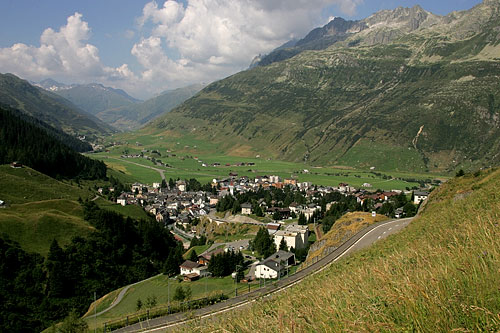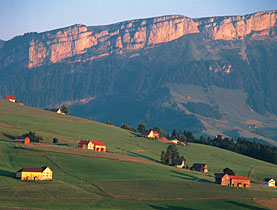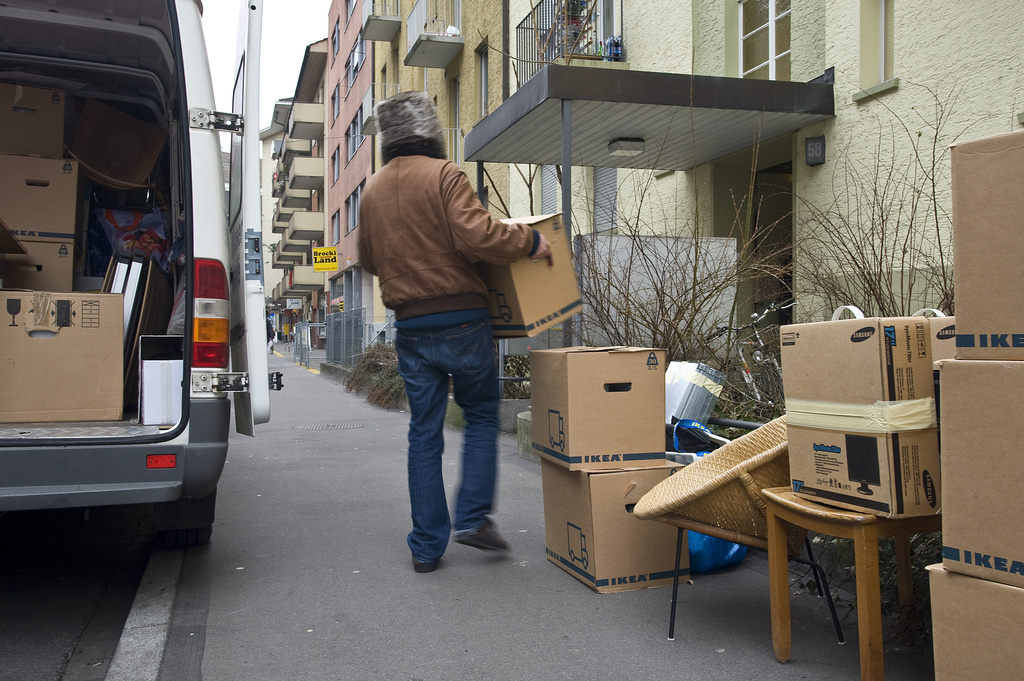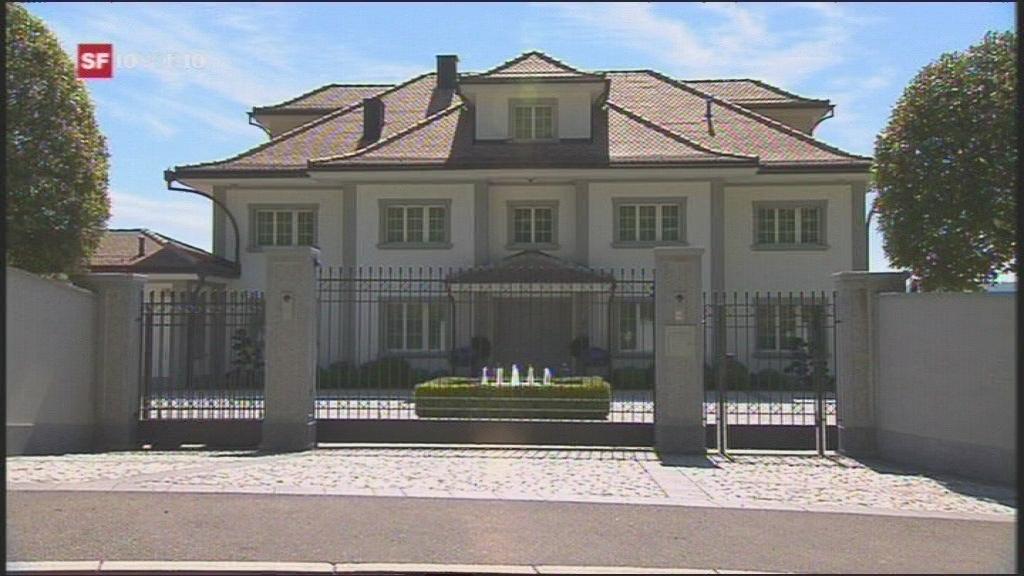Uri charges to top of disposable income league

A radical tax overhaul has given Uri residents more spare cash in their pockets than any other canton, according to a Swiss survey of the cheapest place to live.
Suburbia in less glamorous cantons is fast becoming the place for middle income earners to seek refuge from rapidly rising property prices in most Swiss cities, despite the extra cost of commuting.
William Tell may be surprised to learn that his home canton of Uri jumped ten places to top the charts in the Credit Suisse disposable income league table, released on Tuesday.
This is largely down to the adoption of a flat rate income tax system in 2009 that significantly reduced the burden on residents.
Tax competition, particularly among central Swiss cantons, has heated up in recent years, with many lowering both income and corporate tax rates to attract new residents and companies.
Property price boom
Available disposable income in Uri has also been underpinned by stable property prices, but it remains to be seen what effect the Andermatt hotel, ski and apartment development would have on the overall cost of homes when it opens in 2014.
Property prices have been anything but stable in cities and towns such as Geneva, Zurich and Zug over the last few years.
The spiralling cost of homes has forced many middle and low income earners out of such areas, prompting Geneva to open up more land for construction and Zug to create low cost housing zones.
“It is very hard to finance a single family dwelling in Geneva or Zurich without significant resources,” Credit Suisse report author Thomas Rühl told swissinfo.ch. “If you are happy in a small apartment you can still live in a city centre, but if you want more room to live in, you need to move to the suburbs.”
Commuting pays off
Moving further away from cities often means paying more to commute back in every day to work. But the extra cost of transport is small change compared to the savings that can be made by such a move.
The Credit Suisse report highlights a case study of a married couple with two children who would have SFr39,800 ($45,428) in disposable income living in Hergiswil, a 10 minute commute to Lucerne, and SFr69,700 if they resided in Altdorf, canton Uri, 35 minutes away.
“The financial cost of commuting is nowhere near as high as the saving you would make by moving out of a city centre,” Rühl told swissinfo.ch.
“If you moved to Fribourg you would have to pay SFr5,000 more a year to commute into Lausanne, but you would save many more thousands on property.”
The disposable income report compared how much taxes, house prices or rent, health care, social security and utility charges ate into the earnings of middle income families in all Swiss cantons.
Wealth magnets
The cantons were ranked according to how much disposable income was left in the wallets of residents after these charges were deducted. High and low income earners were discounted as they could distort the picture through social security benefits or special tax breaks that are frequently awarded to rich residents in Switzerland.
Since it was last conducted in 2008, Uri has leapt ten places to knock Appenzell Inner Rhodes from the top spot in 2011.
St Gallen moved up five places to number eight thanks to a significant reduction in taxes. The rising cost of housing saw Zug slip down a rank to number 19 despite the canton having a relatively low tax burden.
Residents in Geneva are left with the least disposable income, as they were in the last two editions of the report published in 2006 and 2008.
Geneva’s combination of relatively high taxes and housing costs was also evident in cantons Vaud, Basel City and Basel Land. Zurich was also at the bottom end of the table thanks in large part to high property prices.
Two years ago Zurich voted to end the practice of handing out generous lump-sum tax breaks to rich foreign residents. But the system still plays an important role in Geneva, Vaud and Zug, making these cantons – in economic terms – more attractive place for high earners to live than middle income residents.
“Property prices are very high in Geneva and Zurich, but that is no different in many large cities around the world such as downtown New York,” Rühl told swissinfo.ch. “High earners are more interested in how much their incomes will be taxed than in the cost of real estate.”
Cantons ranked in order of disposable income residents enjoy after tax and other expenses.
Uri (ranked 11th place in 2008)
Glarus (3)
Appenzell Inner Rhodes (1)
Obwalden (2)
Thurgau (4)
Appenzell Outer Rhodes (5)
Schaffhausen (8)
St Gallen (13)
Nidwalden (9)
Graubünden (12)
Schwyz (6)
Solothurn (7)
Lucerne (17)
Aargau (14)
Jura (10)
Valais (15)
Fribourg (16)
Ticino (19)
Zug (18)
Bern (20)
Neuchatel (21)
Zurich (22)
Basel Land (23)
Vaud (24)
Basel City (25)
Geneva (26)

In compliance with the JTI standards
More: SWI swissinfo.ch certified by the Journalism Trust Initiative





You can find an overview of ongoing debates with our journalists here. Please join us!
If you want to start a conversation about a topic raised in this article or want to report factual errors, email us at english@swissinfo.ch.